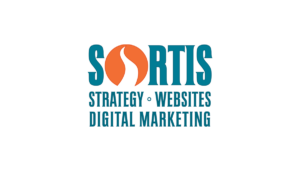SMART PRACTICES FOR MAXIMIZING YOUR PAID ADVERTISING INVESTMENT.
Sometimes called paid search or pay-per-click, digital paid advertising allows businesses to create online ads and pay a pre-determined fee each time their ad is clicked. Most types of paid advertising show up in search engines, such as Google and Bing, and social media platforms like Facebook, Twitter, and LinkedIn.
For businesses looking to make the most of their marketing dollars, the many benefits of paid advertising make it an essential part of their integrated marketing strategy. With an average cost of $2.32 per click, paid advertising can take a big bite of your budget, but the top rankings and added traffic it can deliver may make it a worthwhile investment if you do it right. Here is a list of paid advertising dos and don’ts to help drive better results.
DO GO BEYOND GOOGLE
Don’t put all your eggs in one basket. While Google is a powerhouse, bid on keywords and place ads on multiple search engines, including Bing and Yahoo, to see which offers the best value for the price. Why pay extra for Google when you may get just as much traffic from Bing for less?
DO FOCUS ON LONG TAIL KEYWORDS
Understanding keywords is essential to making paid advertising worth it. Tools like Google Ads Keyword Planner are useful for finding the best keywords for your industry. Keep in mind that shorter, more general keywords with the highest search numbers are not always the most effective – only the most expensive. Instead, look for “long tail keywords,” which are longer, more specific, and more likely to be closely related to what your potential customers are looking for. For example, “insurance” is a general and expensive keyword with thousands of searches each day, but “renter’s insurance for college students” is a highly descriptive keyword that is more likely to drive more targeted of traffic at a lower price.
DO REVIEW RESULTS REGULARLY AND ADJUST AS NECESSARY
One of the benefits of online advertising is the ability track and measure everything, then make adjustments. Google Analytics is one of the many free tools you can use to assess which ads are working and which are not. Once you review your data, digital paid advertising gives you the ability to turn off ads that aren’t performing and promote the ones that are.
DO BE COGNIZANT OF OTHER COMPANIES BIDDING ON YOUR BRAND NAME
Your competitors may bid on your company name so that their ad shows up when users are searching for you. Competitor brand bidding is a controversial practice that is very tricky to execute successfully. While it may give your competitors a slight increase in site visits, it is relatively ineffective for most companies.
DON’T USE PAID ADVERTISING AS YOUR ONLY TOOL
Digital paid advertising should play a complementary role in your overall marketing mix. It works exceptionally well in conjunction with search engine optimization efforts by placing your ad at the top of the search results pages immediately – without having to wait for “organic” rankings to rise over time. As your organic rankings soar, you can alter your paid advertising strategy to target those keywords that have not yet seeded in organic results.
DON’T OVERBID FOR THE #1 SEARCH POSITION
Once you have your keywords selected, it’s time to bid. But don’t think you need to pay for the first position on the page. Many searchers avoid the top listing, knowing it it an ad. It often makes more sense to target the #2 or #3 position in PPC, which costs far less and can produce more clicks.
DON’T BID ON YOUR COMPANY NAME
Unless you have an extremely large marketing budget, it’s not necessary. As long as you have a comprehensive search engine optimization (SEO) strategy, users will find you in organic search results – paying for branded clicks is unnecessary in most cases.
DON’T LINK YOUR ADS TO YOUR HOME PAGE
If you’re offering an incentive for users to click on your ad – a monthly discount or special, for example – don’t send users to your home page. This practice requires them to search your site to find the details of your offer. Instead, link your ad to a custom landing page that provides more information and suggested next steps.
Paid advertising is an essential element to most digital marketing campaigns. But it’s not easy to do correctly. Follow our dos and don’ts for best results or call in reinforcement from our experienced Madison-area digital marketing pros to take your paid advertising efforts to the next level.




